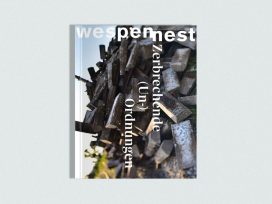Global thrillers
The London Independent recently invited me to review ‘s Archangel for them. Since Archangel is to be published more or less simultaneously in German it seems to me to be a reasonable jumping off point for some thoughts about thrillers and crime fiction in general.
Archangel is set in contemporary Moscow but looks back to Stalinist Russia and particularly the death of Stalin. Central to the plot is an oilskin-bound notebook in Stalin’s handwriting, found by Beria in a Kremlin safe, hidden, re-discovered by an ex-Stalinist functionary and used by him to advance the return of Stalinist communism. The main character is an English academic who is manipulated to authenticate the notebook. The Russian background is presented strongly and vividly and convinces the reader of its truthfulness, and much of the writing is pacey. In short, it is in a tradition of English thriller-writing that goes back through , , , , and many others to and beyond. Except that…
Except that it is 421 pages long instead of two hundred and fifty. Except that it is overloaded with a portentous analysis of contemporary Russian society which I imagine is accurate enough, but not in the least revelatory. Except that it’s central characters are woeful stereotypes. Except that the writing is sometimes clogged and lacks the clarity of Harris’s predecessors. Except that the plot creaks, barely stands up, and turns on an event, a situation, that is frankly as fantastically unlikely as anything Buchan or his lesser contemporaries ever dreamt up. Except that it attempts to flatter the reader into believing he or she has been given genuine insights into the deepest recesses of the corridors of power and the minds of the giants who shape our lives. In short, it is on the way to betraying the tradition it came from and seeks to create for its author and his publisher a niche in the best-seller lists dominated by such names as , , , the later , and many more.
What are the characteristics of these formulaic block-busters? They are long. They are complicated. They are often written in a bland but opaque prose that is like wading through a stew with too little meat in and occasional pieces of gristle. They flatter the reader into believing they reveal, for our personal eyes only (all twenty million of us) secrets of recent history that have been vouchsafed to the author alone. They take no account of the economic, social, and historical imperatives that shape our lives but insist that history is a matter of personality only, and generally speaking psychopathic personality at that. Contingency, sheer mischance or happenchance which in actual fact are so much part of our individual lives, are almost completely excluded unless the Author has got his knickers in a twist and needs an outrageous coincidence. At the lower end of this low market, they are generally set, at least in part, in exotic places, but not too exotic: Caribbean hideaways are common, as also are Alpine Schlosses, and the villain usually has a yacht, a sadistic bodyguard and is given to unnatural sexual practices – well, unusual ones anyway.
Incidentally let me add Archangel is not as bad as this but it will be interesting to see how long Harris can hold out from the worst excesses of this sub-genre, especially as the pressure of writing, of being bribed to write, one blockbuster every two years (minimum) takes its toll.
Does all this matter? Yes it does. The blockbuster genre has produced very few books of any lasting value at all. They are by definition holiday fodder, to be read on long flights, or given as presents at Christmas and they have entirely ruined the market for the older sort of thriller out of which they grew and which did produce many many books that one can return to again and again, and which are now out of print or,if new, virtually unpublishable. The great English exemplar of this genre was Eric Ambler who died last year. He too had his formula and there is a fair bit of it still lingering on in Archangel. Basically an ordinary sort of person, a businessman, a journalist, an academic, an engineer (Ambler trained and practised as an engineer before becoming a writer) stumbles into or is drawn into an intrigue involving spying or crime and is generally given a hard time as a result. That’s being very reductive, but you get the idea. What makes his books so fascinating is the interdependence that exists between the main character and historical forces of some importance. The Cold War – The InterCom Conspiracy; the Conflict in Palestine – The Levanter; Communist subversion in the Far East – Passage of Arms… and so on. But Ambler never makes the mistake of presenting real historic personalities, leaders or otherwise – it is at street level that the impact of historical forces are experienced and therefore understood; his prose is like the flow of spring water unclogged with neo-baroque description; sex and brutality take their proper place on the periphery of our lives though love, hate, greed and revenge may figure largely; technical know-how and hardware serve the plot but are never there to impress or flatter the reader, and so on and so on… And in England now, NOT ONE OF AMBLER’S books is in print, though I believe, following his death, an English publisher is now planning to reissue some of them.
What has happened? Well the answer is clear enough and boring too: globalisation, the Market, commodity fetishism, and the ineluctable tendency of all products of capitalism to lose their individuality, to imitate each other, to become standardized. Publishers and authors may believe that they remain above all that sort of thing, but do they? Do they, hell! The first thing a publisher asks, faced with a manuscript, is “what do we sell this as?” And if it doesn’t fit a market niche it’s either dumped or rewritten until it does.
If it’s a thriller it must be long, 120,000 words at least, it must deal with global events at a fantasised level beyond our normal reach, it must have a core of expertise presented in a way that flatters the reader’s understanding without actually asking him/her to learn anything or use his/her brain. If the author has been previously published it must absolutely not in any way go beyond the readers’ expectations of that author. It must not be genuinely original or personal. In short it reduces the author’s function to that of the sort of tradesman or artisan who makes reproduction furniture, turning out the same chair or table again and again, and employed to do so only because “hand-crafted” is a selling point on the label or because the computerised machine that will do the job as well has not yet been invented.
An important part of this whole exercise is the author’s Name. This becomes the Name not of a person, an individual, but of a brand, the author’s name becomes a brand-name. What is the difference between Addidas and Nike? The name. “The New Forsyth” the advertisements proclaim on the posters on the Underground, next to those that announce a “New and Improved Washing Powder With A Name We all Recognize”. So far has all this gone that it is now generally believed and alleged that Lord Archer hasn’t written a book for years, but a stable of hacks turns them out for him. Even if this is not true, the fact that it is credible proves the points I am trying to make.
Anyway, the result of all this is that the bookshops’ shelves are more and more filled with identical products, all of the same thickness, with the same embossed glittery covers and the same names on them, quite a lot of names still, maybe as many as forty… As many as FORTY? Just Forty Authors for several billion readers across the world to choose from? Only Forty??!!??
The sort of thriller I have been writing about is a sub-genre of the crime novel but the process is taking place in all the other sub-genres as well. What they all have in coommon is the way market forces, the costs of production, distribution, accounting and all the rest of it make it inevitable that any best-selling book must be long. Take the traditional English Mystery. The first thing you cannot help noticing about say P D James, Ruth Rendell, Minette Walters is that, compared with Allingham, Christie, Sayers, their books are FAT. Take hard-boiled American fiction: you could squeeze three Chandlers into an Ellroy. Even someone as sporadically his own man as Elmore Leonard or Walter Moseley comes home at getting on for twice the length of Chester Himes. But the main problem for all modern writers of crime fiction remains the “niche”. Moseley, Ellroy and Leonard have all broken out of it with at least one book each, a book which was different from anything they had written before, which left the territory they had occupied or had a completely fresh take on it. I don’t know what the sales figures for these books have been, but I doubt their publishers will offer their authors further opportunities to be their own masters.
When all’s said and done it’s not the publishers’ fault, nor the readers’, it’s not even the booksellers’, they all have to make a living. It’s just one small part of the global process which homogenizes the food we eat, the cars we drive, the clothes we wear, the music we listen to, the shopping malls we shop in, even God help us, the lamp-posts in the shopping malls.
You want a return to the good old days? You want to halt this process? You want fiction, crime fiction which has genuine meaning, relevance, emotion and individuality? Then you will have to man the barricades and consider putting those lamp-posts to uses not foreseen by the computers which designed them.
Published 24 January 1999
Original in English
Contributed by Wespennest © Julian Rathbone / Wespennest / Eurozine
PDF/PRINTNewsletter
Subscribe to know what’s worth thinking about.



